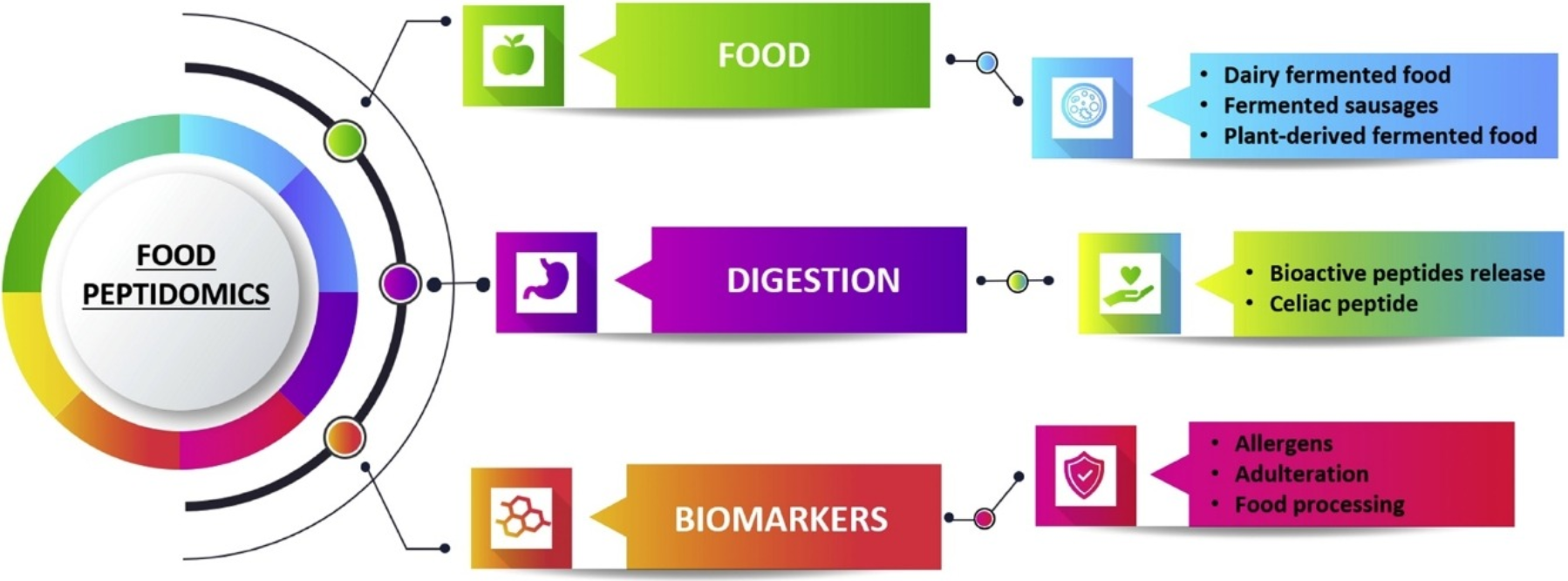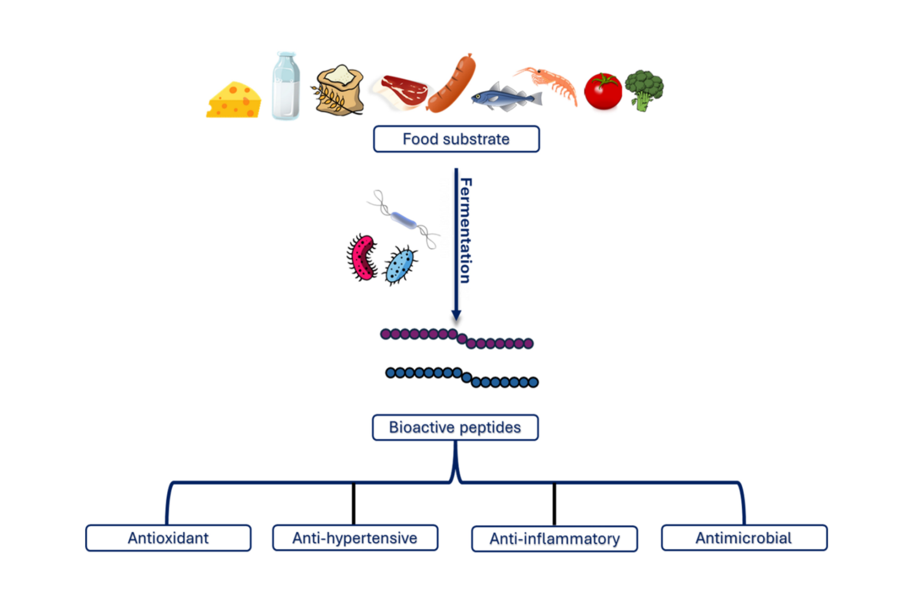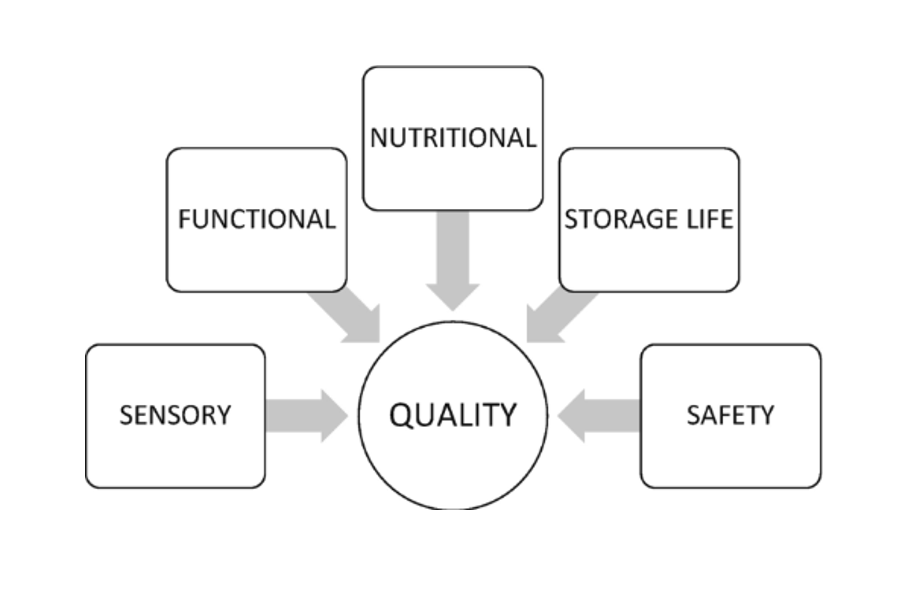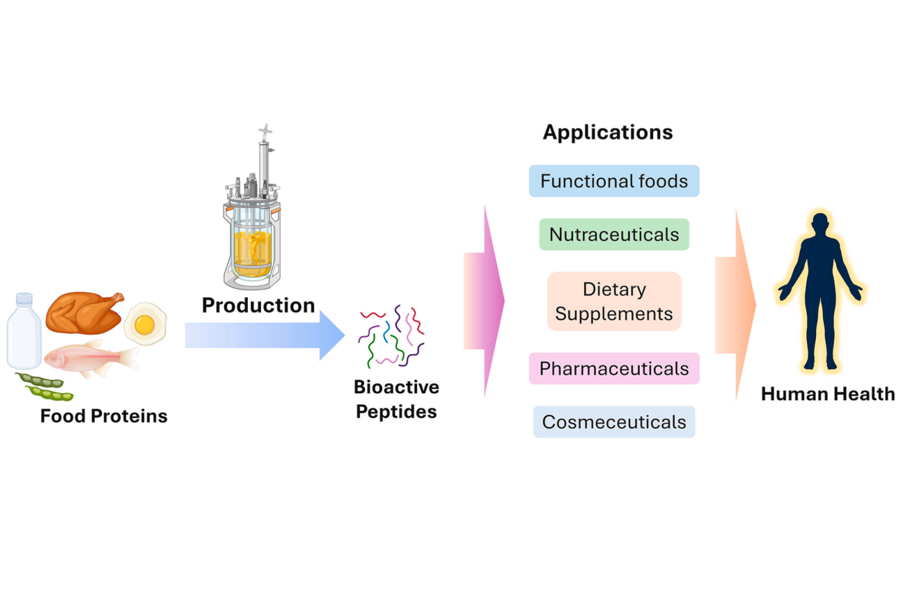Peptidomics-Based Food Industry Research Service
- Raw Food Materials (e.g., fruits, vegetables, grains, seeds, legumes, meat, fish, poultry)
- Processed Foods (e.g., dairy products, protein isolates, fermented foods)
- Food Extracts (e.g., protein concentrates, hydrolysates)
- Food Byproducts (e.g., whey, soy residue, fish skin)
- Solid Samples: 5–10 g of raw or processed food material.
- Liquid Samples: 10–20 mL for biofluids or liquid extracts.
- Hydrolysates: 1–2 mL of concentrated hydrolysate.
- Samples should be stored at -80℃ and shipped with dry ice.
Peptides, as short chains of amino acids, are critical intermediates in protein metabolism and are present across diverse food matrices, where they serve as indicators of product quality, freshness, processing history, bioactivity, and safety. Peptidomics is the large-scale study of peptides in biological systems. Peptidomics provides a powerful molecular lens to study the functional, nutritional, and sensory characteristics of food products.
In the food industry, the application of peptidomics has grown significantly due to its ability to reveal the complex peptide profiles within diverse food products. By combining peptide identification, quantification, and structural analysis with bioinformatic interpretation, peptidomics supports innovative research across dairy, meat, plant-based foods, fermented products, and functional food ingredients. It also facilitates the study of peptide-related allergens or contaminants. These insights play a pivotal role in product development, shelf-life assessment, quality control, safety verification, nutritional enhancement, and consumer health monitoring.

Service at MtoZ Biolabs
MtoZ Biolabs provides an end-to-end Peptidomics-Based Food Industry Research Service tailored for food scientists, technologists, and product developers. Leveraging cutting-edge LC-MS/MS instrumentation, proprietary peptide extraction protocols, and bioinformatics platforms, we support food research at every stage. Our expertise spans multiple peptidomics applications including peptide biomarker discovery, proteolytic pattern analysis, quality fingerprinting, and functional peptide screening.
Key components of our service include:
💠Peptide Identification and Characterization
We identify and sequence peptides present in raw, processed, fermented, or aged food samples. This includes both known bioactive peptides and novel sequences generated through processing or enzymatic cleavage.
💠Peptide Quantification
Through label-free or stable isotope-labeled quantification methods, we monitor peptide concentration changes across production batches, storage periods, or processing stages.
💠Structural and Functional Analysis
We map cleavage sites, evaluate post-translational modifications, and assess peptide physicochemical properties related to flavor, solubility, stability, or bioactivity.
💠Functional Peptide Screening
We identify peptides with antioxidant, antihypertensive, antimicrobial, immunomodulatory, or other health-related effects to support the development of nutraceuticals or functional foods.
💠Safety and Contaminant Monitoring
We detect peptides associated with spoilage, microbial degradation, or allergenicity to ensure product safety and regulatory compliance.
Peptidomics-Based Food Industry Research Solutions
Analysis Workflow

Applications
Our peptidomics-based research services are applicable across diverse sectors of the food industry:
1. Food Quality Evaluation: Identify peptide fingerprints correlated with freshness, oxidation, or spoilage. Assess degradation patterns during storage or transport.
2. Fermentation and Enzymatic Processing Research: Monitor proteolytic activity, microbial contributions, and product consistency during fermentation and enzymatic hydrolysis.
3. Functional Food Development: Discover peptides with physiological effects, such as ACE inhibition, antioxidant properties, or immune modulation, for use in functional and fortified foods.
4. Ingredient Validation and Product Authentication: Verify raw material integrity, detect adulteration, and confirm species origin through peptide marker analysis.
5. Allergen and Contaminant Screening: Identify peptides associated with allergenic proteins or toxic degradation products to ensure consumer safety.
6. Nutritional Profiling: Analyze peptide composition as part of protein digestibility and nutrient bioavailability studies.
Why Choose MtoZ Biolabs?
✔️Advanced mass spectrometry and bioinformatics platforms
✔️Integrated one-stop peptidomics solutions
✔️Experienced team with domain-specific expertise
✔️Flexible and customizable workflows
✔️Reliable data and high-quality deliverables
Sample Submission Suggestions
1. Sample Types
We accept various sample types, including but not limited to:
2. Sample Quantity
3. Storage and Transport
*Note: If you have special sample types or require additional guidance, please contact us for personalized support before shipping.
Deliverables
1. Comprehensive Experimental Details
2. Materials, Instruments, and Methods
3. Total Ion Chromatogram & Quality Control Assessment
4. Data Analysis, Preprocessing, and Estimation
5. Bioinformatics Analysis
6. Raw Data Files
Related Services
Peptide Mass Spectrometric Identification Service
How to order?










